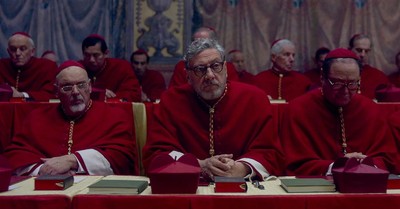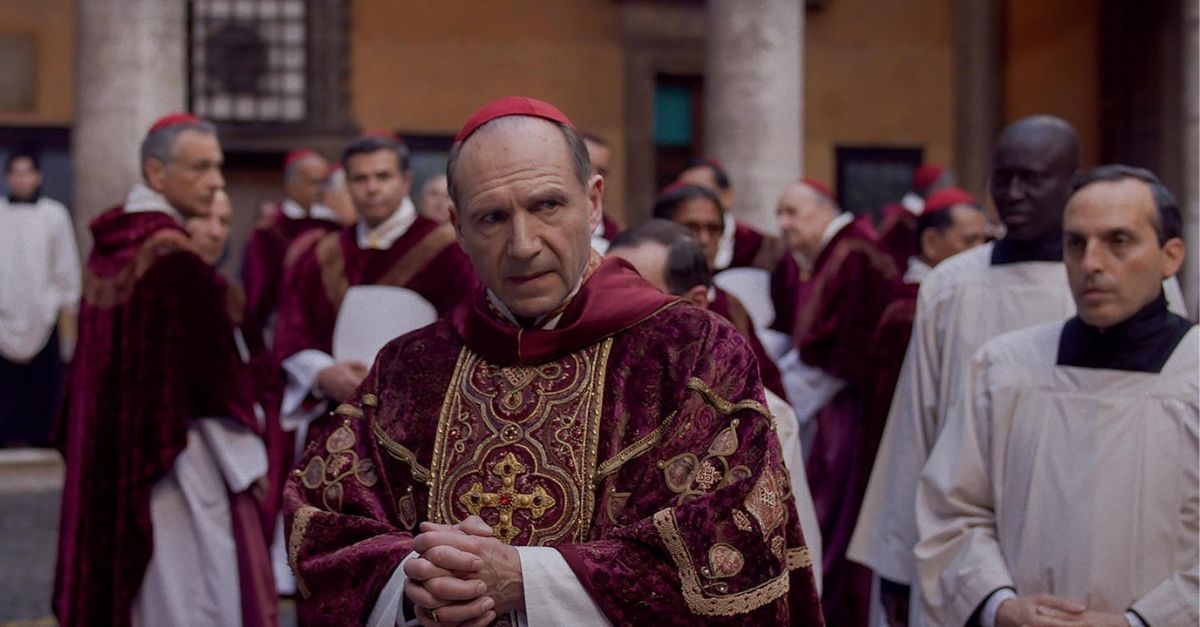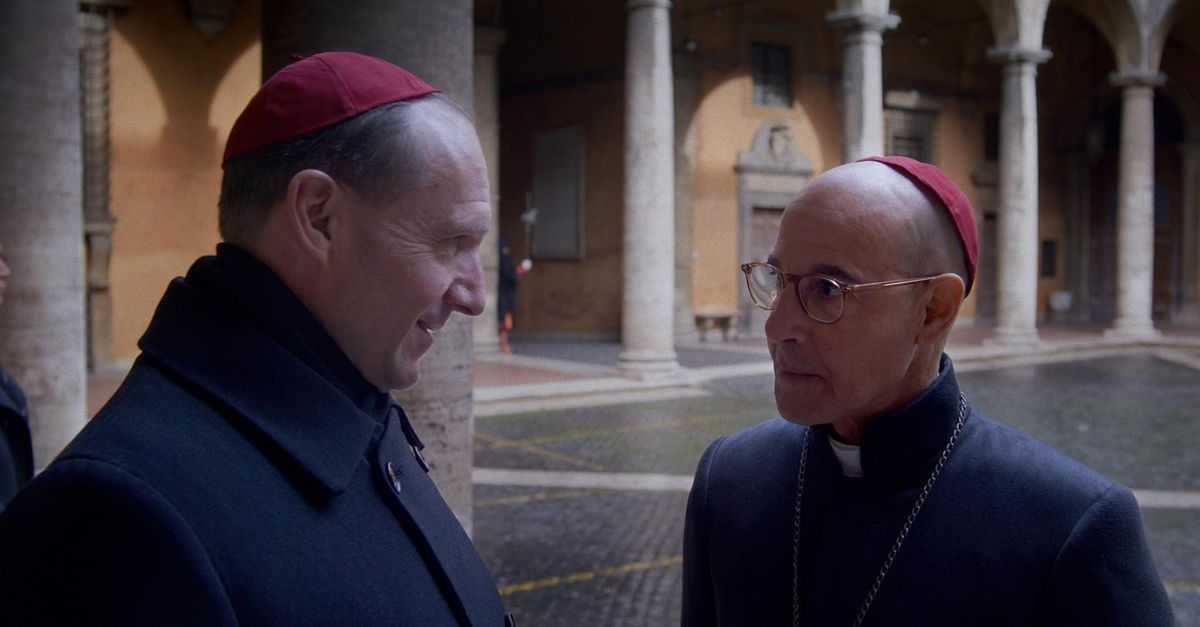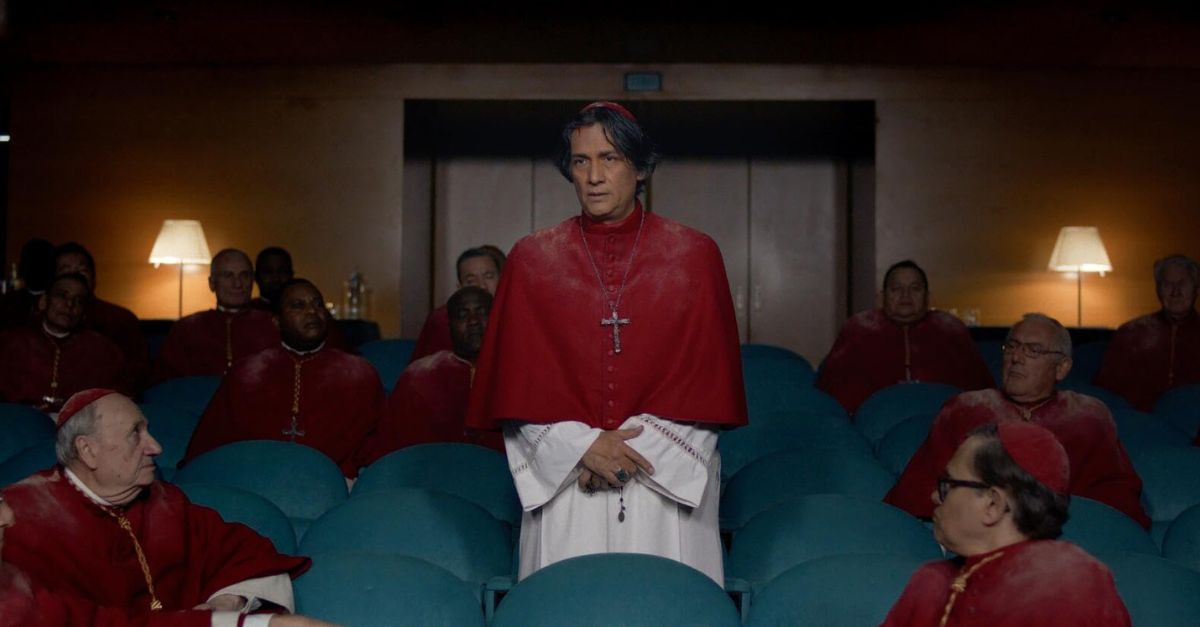3 Things Christians Should Know about the Controversial Movie ‘Conclave’
Movies


Audio By Carbonatix
5:35 AM on Monday, May 5
By Michael Foust, Movies

1. It’s a Riveting Tale of Historical Fiction
Conclave is based on a 2016 novel of the same name by author Robert Harris, who was inspired to write it after watching the 2013 papal conclave that elected Pope Francis. As he observed the cardinals gathered on the Vatican balcony, Harris said he was reminded of the Roman Senate of yesteryear -- a connection that sparked his interest in the secretive rituals and political undercurrents of choosing a Pope. Harris consulted senior Catholic leaders, including Cardinal Cormac Murphy-O’Connor, whose feedback helped shape the novel -- and who later commended Harris for realistically capturing the inner workings of a papal election.
The book and film are riveting in part because they pull back the curtain on one of the few institutions in the modern world that still clings to mystery. (The U.S. Supreme Court, with its no-cameras policy, is another.)
The film shines in its portrayal of the church’s traditions.
When the late Pope passes, the signet is pried off his hand and then used to press a wax seal onto the door of his apartment, symbolically sealing it until a new pontiff is elected. When the cardinals vote via secret ballot, each one walks solemnly to the front of the Sistine Chapel, where he recites a personal vow out loud before dropping it into an urn. The ballots are then counted, one by vote, before they are burned in a small stove to send smoke through the chimney. The famous frescoes -- including Michelangelo’s The Last Judgment -- look down on the solemn proceedings, adding to the weight and symbolism of the moment.
The Cardinals remain sequestered until a Pope is chosen -- however many days it takes.
Photo Credit: ©Focus Features

2. It’s Considered Controversial and Rightfully So
Nearly every religious body has its own tensions of conservatives and liberals who debate doctrine, ethics, and direction. In Conclave, those debates, at times, look more like political theater, akin to a toned-down debate on the floor of Congress.
“I feel as if I’m at some American political convention,” Lawrence (Ralph Fiennes) tells a colleague.
On one right side of the ideological spectrum is Cardinal Tedesco (Sergio Castellitto), an Italian Cardinal who opposes the leftward drift of the Catholic Church and whose bombastic personality alienates seemingly everyone he encounters. He’s a traditionalist on sexuality and gender. He is conservative on faith, too, believing that radical Islam poses a threat to the world. He’s also, apparently, racist, not wanting a Pope from Africa.
On the left is Cardinal Bellini (Stanley Tucci), who hopes to loosen the church’s teachings on sexuality and gender and who believes in respecting all faiths and tolerating other views within the church. Women, he says, should play a larger role within the church. In his words, he stands for a “common sense approach to gays and divorce.”
Of course, there are other candidates, too, but they fade quickly. One loses support when it’s learned he fathered a child out of wedlock three decades prior. Another drops out when tied to a financial scandal.
The film tells the story from the perspective of Lawrence and Bellini and -- unfortunately -- turns Tedesco and those on the right into caricatures. The liberal bloc plots strategy in the stairwell, in the quietness of empty theaters, and anywhere they can’t be overheard.
“If we liberals are not united, Tedesco will become Pope,” Bellini says.
Late in the movie, a major world event rocks the conclave and threatens to upend the election. Yet it’s the film’s final 10 minutes that have sparked the most controversy. That’s when we learn the newly elected Pope is intersex -- appearing as male but born with female reproductive organs and carrying female DNA.
Some viewers suggest the movie is stronger if you stop watching 10 minutes before the end -- and they might have a point.
Photo Credit: ©Focus Features

3. It Received Mixed Reviews among Catholic Media
Raised Protestant with little knowledge of the Catholic Church, I defer to members of Catholic media for a more educated perspective on Conclave.
Catholic News Agency argued that it is inaccurate to depict the Cardinals as “deeply divided among ideological factions and the papacy as a highly political rather than a spiritual office.” Matthew Bunson, a Catholic Church expert, told CNA that Cardinals in the film “are cartoon characters of what cardinals -- and I know many -- actually talk about, and the types of issues they’re likely to discuss in a conclave.”
John Mulderig of Catholic Review also criticized the plot, writing, “Moviegoers committed to the church’s creeds will, accordingly, want to approach this earnest, visually engaging but manipulative -- and sometimes sensationalist -- production with caution.”
Sister Hosea Rupprecht of Pauline.org lamented: “Conclave offends by taking this sacred ritual, which is supposed to inspire faith, humility, and trust in the providence of God, and turns it into a disturbing commentary on human weakness and ambition.”
To be fair, the film does have its share of humble, godly leaders who are void of agendas and only want what is best for the church. Lawrence is one. A Cardinal from a Central Asian country is another. Yet they’re overshadowed by the more outspoken, ambitious leaders whose tactics seem straight out of a political thriller.
No doubt, a papal conclave has all the drama, symbolism, and intrigue needed to make a Hollywood thriller. This specific Conclave, though -- while gripping and educational -- pushes too far in its fictional depiction of a truly dramatic and sacred process.
Rated PG for thematic material and smoking. The film contains no coarse language (minus two jokes about hell and one possible misuse of G-d) and no sexuality or violence. During one moment in the film, we see the remnants of a terrorist bomb explosion. In the film’s final moments, we hear medical discussion of an intersex person.
Entertainment rating: 4 out of 5 stars.
Family-friendly rating: 3.5 out of 5 stars.
Photo Credit: ©Focus Features

























